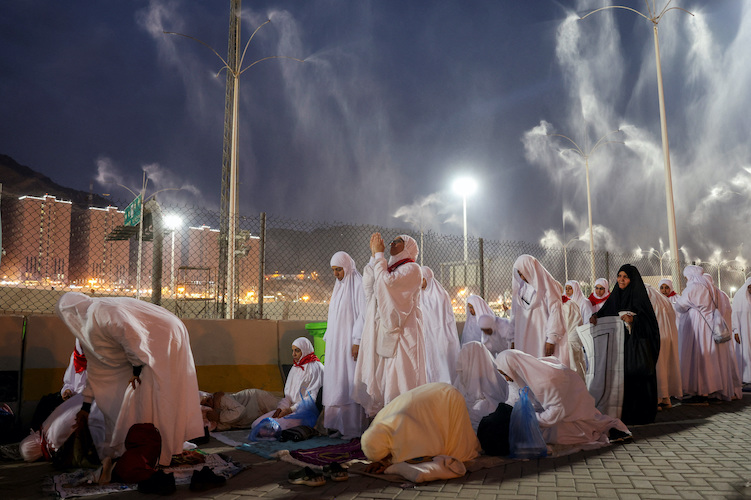Hundreds, if not thousands of deaths, occurred this week in cities across Asia and other parts of the northern hemisphere.
Deadly heatwaves scorched cities on four continents in another sign that climate change may again help to fuel record-breaking heat that surpasses last summer, which was hailed as the warmest in 2,000 years.
In Saudi Arabia, nearly two million Muslim pilgrims are finishing the Haj at the Grand Mosque in Mecca this week. But hundreds have died during the journey amid temperatures above 51 degrees Celsius (124 degrees Fahrenheit), according to reports from foreign authorities.
ALSO SEE: ‘China Won’t Allow It’: TikTok Compares Divestiture to Chip Ban
Egyptian medical and security sources said on Thursday that at least 530 Egyptians had died while participating – up from 307 reported as of yesterday. Another 40 remain missing.
Northern China has also been experiencing severe heat, while provinces in the south such as Guangdong have been hit with flooding from days of intense downpours.
Southeast Asia has also been sweltering, but the most intense heatwave has hovered over India, Pakistan and countries in the Middle East this week.
Delhi sees its warmest night
India’s summer period lasts from March to May, when monsoons begin slowly sweeping across the country and breaking the heat.
New Delhi on Wednesday registered its warmest night in at least 55 years, with India’s Safdarjung Observatory reporting a temperature of 35.2 C (95.4 F) at 1am.
Temperatures normally drop at night, but scientists say climate change is causing nighttime temperatures to rise. In many parts of the world, nights are warming faster than days, according to a 2020 study by the University of Exeter.
New Delhi has clocked 38 consecutive days with maximum temperatures at or above 40C (104 F) since May 14, according to weather department data.
An official at the Indian health ministry said on Wednesday there were more than 40,000 suspected heatstroke cases and at least 110 confirmed deaths between March 1 and June 18, when northwest and eastern India recorded twice the usual number of heatwave days in one of the country’s longest such spells.
Gaining accurate death tolls from heatwaves, however, is difficult. Most health authorities do not attribute deaths to heat, but rather the illnesses exacerbated by high temperatures, such as cardiovascular issues. Authorities, therefore, undercount heat-related deaths by a significant margin – typically overlooking thousands if not tens of thousands of deaths.
Record temperatures
The heatwaves are occurring against a backdrop of 12 consecutive months that have ranked as the warmest on record in year-on-year comparisons, according to the European Union’s climate change monitoring service.
The World Meteorological Organization says there is an 86% percent chance that one of the next five years will eclipse 2023 to become the warmest on record.
While overall global temperatures have risen by nearly 1.3C (2.3 F) above pre-industrial levels, climate change is fuelling more extreme temperature peaks – making heatwaves more common, more intense and longer-lasting.
On average globally, a heatwave that would have occurred once in 10 years in the pre-industrial climate will now occur 2.8 times over 10 years, and it will be 1.2C warmer, according to an international team of scientists with the World Weather Attribution (WWA) group.
Scientists say heatwaves will continue to intensify if the world continues to unleash climate-warming emissions from the burning of fossil fuels.
If the world hits 2 C (3.6 F) of global warming, heatwaves would on average occur 5.6 times in 10 years and be 2.6C (4.7 F) hotter, according to the WWA.
- Reuters with additional input and editing by Jim Pollard
























